第76章 CHAPTER XX(6)
He saw a good deal of his pretty Susan that day. She was tender in her expressions and manners as usual, but there was a little something in her looks and language from time to time that Clement did not know exactly what to make of. She colored once or twice when the young poet's name was mentioned. She was not so full of her little plans for the future as she had sometimes been, "everything was so uncertain," she said. Clement asked himself whether she felt quite as sure that her attachment would last as she once did. But there were no reproaches, not even any explanations, which are about as bad between lovers. There was nothing but an undefined feeling on his side that she did not cling quite so closely to him, perhaps, as he had once thought, and that, if he had happened to have been drowned that day when he went down with the beautiful young woman, it was just conceivable that Susan, who would have cried dreadfully, no doubt, would in time have listened to consolation from some other young man,--possibly from the young poet whose verses he had been admiring. Easy-crying widows take new husbands soonest; there is nothing like wet weather for transplanting, as Master Gridley used to say. Susan had a fluent natural gift for tears, as Clement well knew, after the exercise of which she used to brighten up like the rose which had been washed, just washed in a shower, mentioned by Cowper.
As for the poet, he learned more of his own sentiments during this visit of Clement's than he had ever before known. He wandered about with a dreadfully disconsolate look upon his countenance. He showed a falling-off in his appetite at tea-time, which surprised and disturbed his mother, for she had filled the house with fragrant suggestions of good things coming, in honor of Mr. Lindsay, who was to be her guest at tea. And chiefly the genteel form of doughnut called in the native dialect cymbal ( Qu. Symbol? B. G.) which graced the board with its plastic forms, suggestive of the most pleasing objects,--the spiral ringlets pendent from the brow of beauty; the magic circlet, which is the pledge of plighted affection,--the indissoluble knot, which typifies the union of hearts, which organs were also largely represented; this exceptional delicacy would at any other time have claimed his special notice.
But his mother remarked that he paid little attention to these, and his, "No, I thank you," when it came to the preserved "damsels," as some call them, carried a pang with it to the maternal bosom. The most touching evidence of his unhappiness--whether intentional or the result of accident was not evident was a broken heart, which he left upon his plate, the meaning of which was as plain as anything in the language of flowers. His thoughts were gloomy during that day, running a good deal on the more picturesque and impressive methods of bidding a voluntary farewell to a world which had allured him with visions of beauty only to snatch them from his impassioned gaze. His mother saw something of this, and got from him a few disjointed words, which led her to lock up the clothes-line and hide her late husband's razors,--an affectionate, yet perhaps unnecessary precaution, for self-elimination contemplated from this point of view by those who have the natural outlet of verse to relieve them is rarely followed by a casualty. It may rather be considered as implying a more than average chance for longevity; as those who meditate an--imposing finish naturally save themselves for it, and are therefore careful of their health until the time comes, and this is apt to be indefinitely postponed so long as there is a poem to write or a proof to be corrected.